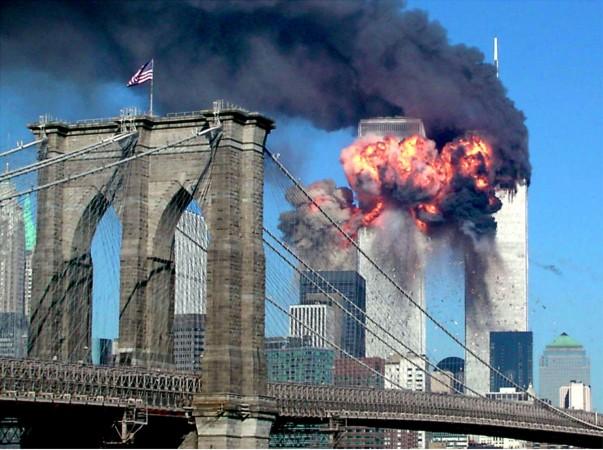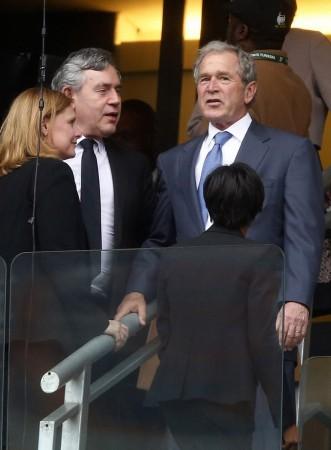
Monday, September 11, marked the 16th anniversary of the biggest game-changing event in contemporary international politics. It was on this day in 2001 that two passenger flights were used as missiles to bring down the Twin Towers in New York while two more flights fell short of the targets in the Pentagon and White House.
It was the biggest attack on the US since the Pearl Harbour incident of 1941 and the first onslaught on the American mainland since 1812 when the British had burnt down the city of Washington, including the White House. The events that led to the 9/11 attacks were big but the repercussions were humongous and they had changed not just the US but also the pattern of international affairs forever.
Between 1991 and the attacks of 9/11, the US dominated a largely unipolar world. Ever since the fall of the Berlin Wall in 1989, the collapse of the USSR in less than two henceafter then and the advent of globalisation, the world became more US and west oriented – economically, politically and militarily. The unipolar system gave credence to the theory of 'End of History' as was propounded by Francis Fukuyama after the fall of the Socialist Bloc.
9/11 attacks: Huntington's theory eclipsed that of Fukuyama
But four years since Fukuyama's theory (1992) surfaced, Samuel P Huntington came up with the theory of 'Clash of Civilisations' which sounded as the anti-thesis to what Fukuyama had said. According to Huntington, not nations but culture and religions would be the next reasons for conflicts in the post-Cold War and Islamic terrorism would be the biggest threat to world peace. The theory proved itself to be true as the Americans' meddling in Afghanistan and West Asian region prepared the stage for the rivalries of the uni-multipolar world. And when it all culminated into the 9/11 strikes, it was a foregone conclusion that history was far from ending. In fact, a new history was in the making.

The 9/11 attacks against the most powerful country on the planet made Islamic terrorism a matter of universal concern.
The then administration of George W Bush had made a massive retaliation after the earth-shattering event by invading Afghanistan where the 9/11 mastermind, Osama bin Laden, was based but unlike the Americans' retaliation in the wake of the Pearl Harbour attack by the Japanese which had proved to be decisive in concluding the Second World War in favour of the Allied Powers, it was decisive this time and the US have not been able to come out of the Afghanistan quagmire in over one-and-a-half decades and under three presidencies.
US could not settle the war decisively after 9/11
The reason for this failure to settle the question in Afghanistan despite seeing the end of bin Laden in 2011 is the growing complications in international politics and the shifting focus from the state to the non-state actors like terrorist groups that are not limited by national boundaries. The US had tried to continue with its unilateral foreign policy in the wake of the 9/11 attacks – as it was seen in its invasions of Afghanistan and Iraq – but Washington had gradually understood that it was not sustainable in the long run. The rise of countries like China and India, the affecting of Washington's relations with Israel and Saudi Arabia, an assertive Russia under Vladimir Putin, the Iran problem, the Arab Spring and the recession had compelled the US authorities to go for multilateralism and subsequently, the Nato was re-energised.
The US was also engaged in a regime-change mission after the 9/11 attacks. There was a clear goal of toppling regimes in West Asia that looked threatening but after the Iraq war of 2003 in which Saddam Hussein was toppled, the US and the west did not pursue it any further owing to practical problems faced in both Afghanistan and Iraq. The US retreated from 'reforming' countries, leaving a void for disruptive elements to fill in and also giving greater space to rival nations like Russia and China to play. We saw how the US hesitated to go forward on Libya and Syria and this is a clear fallout of Washington's foreign policy misfiring in the post-9/11 era.
Securitisation of foreign policy
Another significant change in the post 9/11 period is the securitisation of the foreign policies of both the US and Europe. This was a more profound and long-term change in the realms of foreign policy which emanated from the USA's war on terrorism and although the Europeans did not tighten the noose as hardly as the Americans but yet there was a clear indication that 9/11 and the subsequent terror attacks on the soil of Europe had profoundly shaken up the West's psyche.
The September 11 attacks had eclipsed the 'end of history' theory and paved way for the culmination of the 'clash of civilisations' and the world order today clearly witnesses the big powers working on new arrangements suiting their needs against all sorts of adversities. For the US in particular, the continuous struggle against the forces of terrorism and also dealing with rival nations like China, Russia, North Korea and even Pakistan pose double challenges for its policy-makers. The presence of a unique and unpredictable president in Trump has not helped things by widening gap with Washington's traditional allies. Sixteen years after 9/11, there have been no signs that the Americans have succeeded in scripting a happy ending to their war on terror and the future doesn't look too bright either.

















